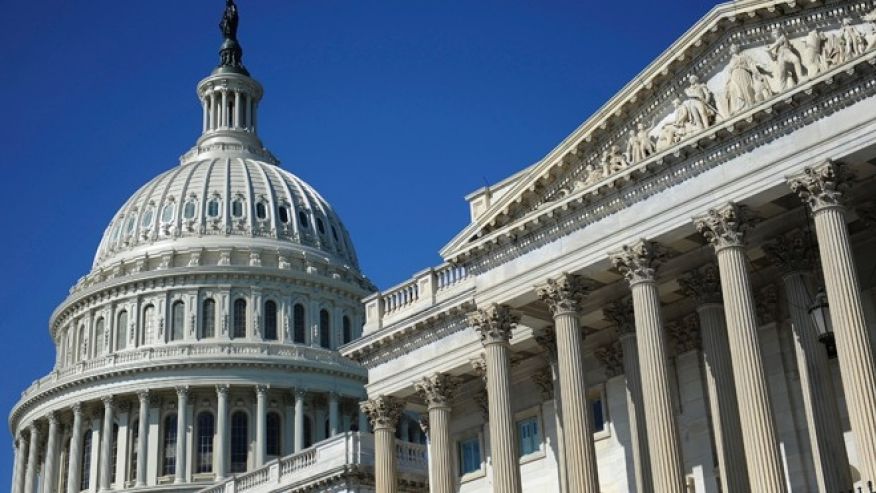Beirut- Senior Vice President at the Washington-based Foundation for Defense of Democracies (FDD) Dr. Jonathan Schanzer on Wednesday presented an eye-opening congressional testimony on substances revolving around Qatar’s unwarranted support for radical groups.
Schanzer’s testimonial came with distinguishable focus on Qatar’s support for a range of extremist groups and grievances regional states hold against Doha’s foreign policy.
“We have noted through the excellent work of my colleague David Andrew Weinberg that Qatar has failed to take action against numerous US- and UN-designated terrorist financiers living in Qatar.”
Dr. Schanzer is part of the leadership team of FDD’s Center on Sanctions and Illicit Finance, which provides policy and subject matter expertise on the use of financial and economic power to the global policy community.
Also reviewing the nuances of the current Qatar spat, the Washington Institute’s Stein Program on Counterterrorism and Intelligence director Dr. Matthew Levitt presented a personal overview on the gas-rich peninsula’s undying advocacy and support to extremist groups.
“The US has also long criticized the Qatari government for its lax counterterrorism policies, and in particular shortcomings regarding efforts to combat terrorist financing,” said Levitt.
Qatar’s “open-door policy” has welcomed in members of many extremist groups such as Hamas, al-Qaeda, and the Afghan Taliban, acting as a safe-haven and providing a platform for terrorist incitement, said Levitt.
Both Schanzer and Levitt testified before the House Foreign Affairs Subcommittee on the Middle East and North Africa.
Levitt adds that for the past few years, Khaled Meshal, who stepped down as the senior leader of Hamas this past May, has been living in Doha. Meshal is a US-designated terrorist.
Commenting on Doha’s detrimental foreign policy, Schanzer highlights that “Qatar has been an obvious area of interest in light of its incredibly brazen and open support for terrorist groups.”
Speaking on the FDD’s review on Qatari regional actions and agenda, Schanzer adds that the institute has been constant.
“Our critique of Qatari foreign policy has been consistent. We have pointed to Qatari support for Hamas, the Taliban, jihadists in Syria, jihadists in Libya, and the Muslim Brotherhood,” he said.
In recent years, Qatar has housed leaders from Hamas, the Muslim Brotherhood, and the Taliban, and has also provided a platform for extremist leaders to spread their ideology through shows on Al-Jazeera.
Respected Congresswoman Ileana Ros-Lehtinen also hit out at Qatar’s support for terrorism, at a hearing of the congressional subcommittee.
“At least one high ranking Qatari official provided support to the mastermind of the 9/11 terror attacks against our country –Khalid Sheikh Mohammed. Then of course there was Khalifa Mohammed who is a US, EU and UN designated international terrorist for his role in financing Al-Qaeda and the 9/11 mastermind.”
“In 2008 he was tried and convicted in absentia for his terrorist activity and arrested later that year by Qatar only to be released by the Qataris 6 months later and then openly financed by Doha,” said Ros-Lehtinen.
On that note, in 2014, the then-Treasury Under Secretary of Terrorism and Financial Intelligence David Cohen had reported that Qatar has openly financed Hamas for many years, and continues to contribute to regional instability.
“This threatens to aggravate an already volatile situation in a particularly dangerous and unwelcome manner,” concluded Cohen.
On the flipside Cohen recognized efforts, although insufficient, spent by Doha on addressing terrorist financing, he called on the government in Doha to continue working with the US on the matter.
He particularly notes the pressing need to cooperate on dealing with the ongoing solicitation of donations that fund extremist insurgents under the guise of humanitarian work.
FDD’s Schanzer also said that the group has worked hard to educate Congress, the executive, and the American public on the challenge of Qatar.
“We found that the previous administration was generally willing to listen, but was unwilling to redress the problem,” he comments.
On resolving the row with Qatar, Levitt adds that the recently Doha-US signed memorandums of understanding and amendments are important steps to ensuring Qatar seriously addresses the ongoing issue of terrorist financing happening within and beyond its borders.
“However, Doha has a weak track record of implementing and enforcing the terms of agreements. Moreover, the steps they have taken thus far are vague, and it is unclear to what extent they will actually address the ongoing issues in Qatar,” he adds.
In early June, Saudi Arabia, the United Arab Emirates, Egypt and Bahrain collectively designated 59 individuals and 12 institutions accused of financing terrorist organizations and receiving support from Qatar.
Many of these entities were previously designated by the United States and United Nations for financing al-Qaeda, though the list includes others with ties to Muslim Brotherhood and extremists in Egypt, Libya, and elsewhere.
“The list provides Doha an opportunity to help resolve its fight with its Gulf Cooperation Council neighbors, and a way to save face while doing so,” concluded Levitt.
